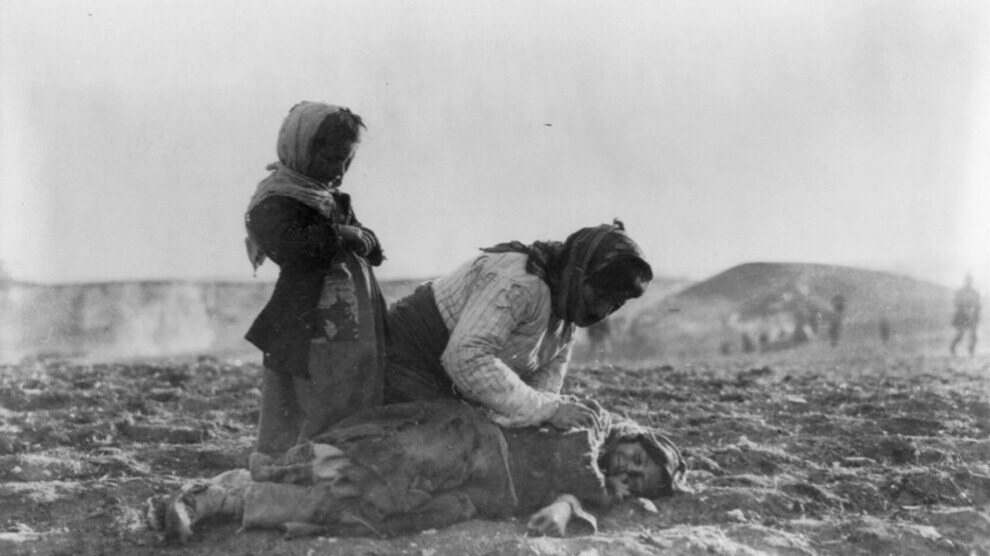DEM Party calls for confrontation with the Armenian Genocide
DEM Party Central Executive Committee commemorated the victims of the Armenian Genocide that took place 109 years ago and called on the Turkish state to face the genocide.
DEM Party Central Executive Committee commemorated the victims of the Armenian Genocide that took place 109 years ago and called on the Turkish state to face the genocide.

Making a written statement on the anniversary of the Armenian Genocide, the DEM Party Central Executive Committee said: "Confronting historical truths, apologising to the aggrieved peoples and beliefs and resorting to restorative justice are indispensable steps to understand each other and the past, to heal historical wounds with a sincere approach and to build a common future. This is also the way to develop a sense of conscience and justice, to share the pain and to build a democratic, peaceful and equal future together in a society and geography.”
The statement further said the following: "109 years have passed since the Great Catastrophe (Metz Yeghern), a massacre of ethnic identity and belief that began on 24 April 1915 when more than two hundred Armenian intellectuals were taken from their homes and sent to their deaths. This process continued with the exile and massacre of hundreds of thousands of Armenians. Other Christian peoples of these lands also paid a heavy human cost and were massacred as a result of these policies and practices.
It is clear that postponing or failing to confront the truths and shames that have made the Middle East and Caucasus geography and the lands we live on barren does not serve social peace and speaking the truth. Confronting crimes against humanity is also an important step towards building a common and equal future and social peace.
Making the existence of different peoples and beliefs, identities and cultures in these lands forgotten; in other words, erasing and ignoring differences and creating a homogenous society, making one race, one religion and one language dominant, has continued since the early 20th century until today.
Unfortunately, even today, the fact that different ethnic identities, languages, cultures or beliefs in these lands are not superior to one another is not generally accepted in society and politics. Legal and constitutional arrangements and requirements corresponding to social pluralism are not fulfilled. The dominance of those who are united and reconciled in the understanding of monism, even if they belong to different political affiliations, continues.
It is of the utmost importance to live peacefully and on equal terms with the Armenian people, one of the ancient peoples of this land and geography, and with our Armenian compatriots. At the same time, developing diplomatic, commercial, economic and cultural relations with the state of Armenia, which is a part of our region, is both the need and interest of the peoples and the way to build peace in the Caucasus region.
With these feelings and thoughts, as the ancient peoples of Anatolia and Mesopotamia, we once again share 109 years of pain and mourning; we feel the Great Catastrophe, this human tragedy in the depths of our hearts, and once again commemorate those who lost their lives in that process with sorrow and respect."